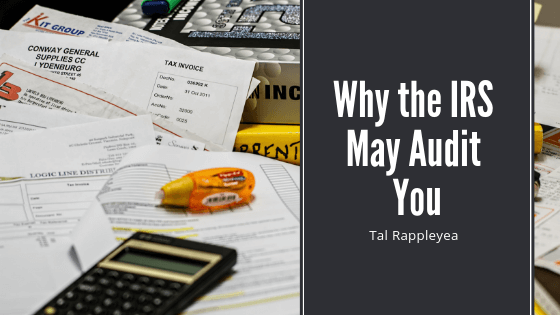When the IRS processes tax returns, a computer selects some of them at random for closer examination and a possible audit. There isn’t really a way to avoid this lottery, and any return could be the lucky winner. There are, however, red flags that can make a return stand out in a bad way and prompt a closer look. It’s best to avoid these audit triggers whenever possible.
Excessive Deductions
Work expenses, charitable donations, and business losses can all lower a taxpayer’s bill come April 15. Excessive amounts in these columns look suspicious, however. A business that loses thousands of dollars every year isn’t likely to last long and most people won’t keep a job that requires them to spend large amounts of money rather than making it. Taxpayers who make a large donation or suffer a significant loss may want to keep the proof in a very safe place.
The Home Office Deduction
The IRS allows those with a home office to claim a deduction but only if the space is used for business and business only. A woodworking bench in the corner of the garage does not make a carpenter’s entire garage a home office. This deduction is one of the most misunderstood and frequently abused deductions, so taking it can trigger the IRS to take a closer look at a return.
The EIC
The earned income credit (EIC) gives low-income taxpayers a hefty boost come tax time. As an added bonus, the credit counts as a payment to the IRS even though none was made. This makes it possible for EIC-eligible taxpayers to get a tax refund that exceeds the amount of taxes they actually paid for the year, essentially allowing them to make a small profit when filing their taxes. Because there is a lot of money at stake and it comes out of Uncle Sam’s pocket, EIC returns get run through an extra check as a matter of course, increasing the odds of an audit.
Round Numbers
The IRS allows taxpayers to use whole numbers when filing returns, but there are rules about rounding. Any dollar amount ending in 50 cents or more gets rounded up to the next whole dollar. Amounts ending in 49 cents or less go down to the next whole dollar. It’s unacceptable to round $495 up to $500, however. Returns filled with perfectly round and even numbers raise red flags.
If an audit does happen, the key to getting through it is to stay calm. Always keep the necessary paperwork as proof and simply provide the IRS with the requested information. With the right documentation or access to it, most audits actually cause very little pain.
